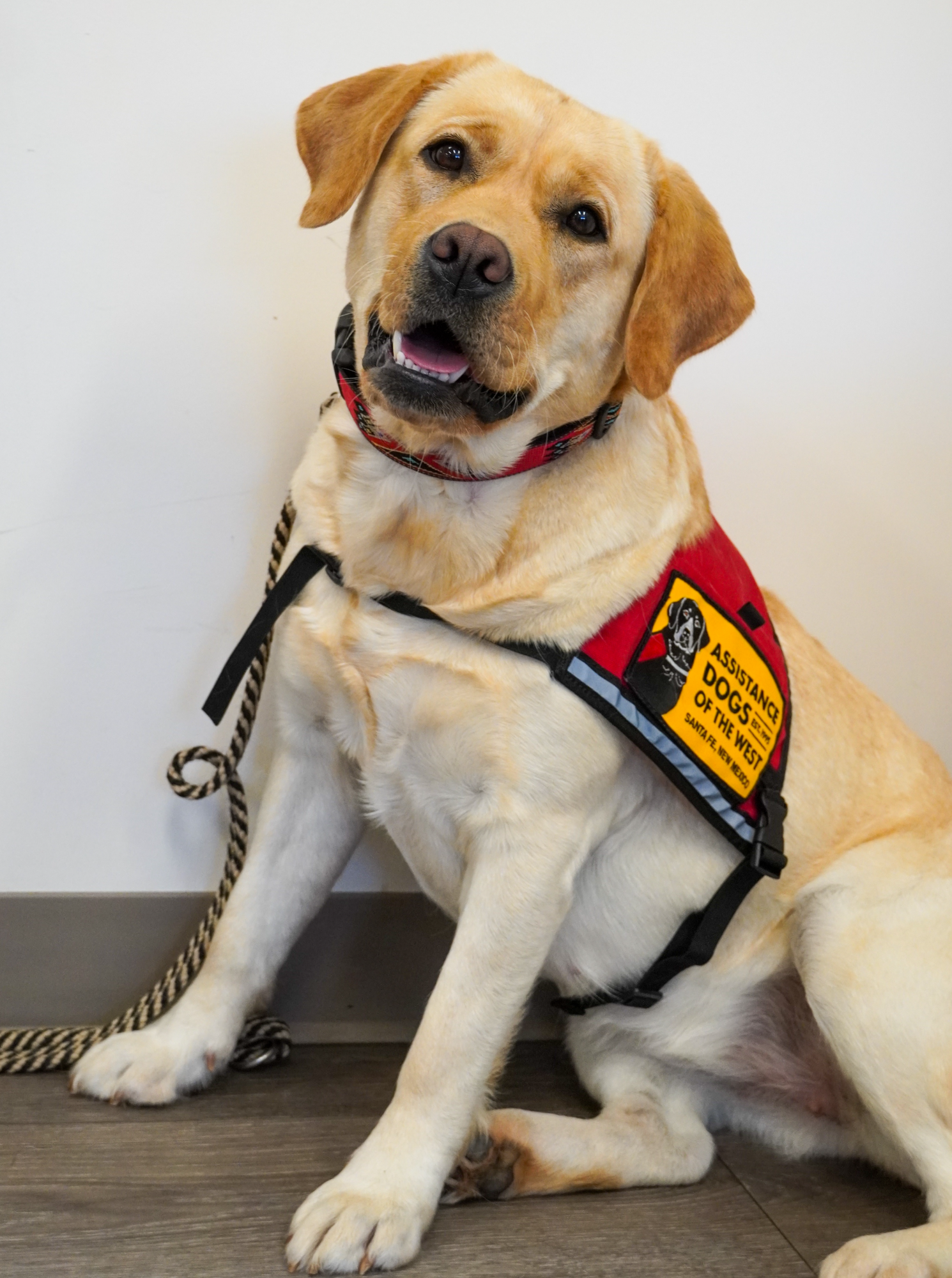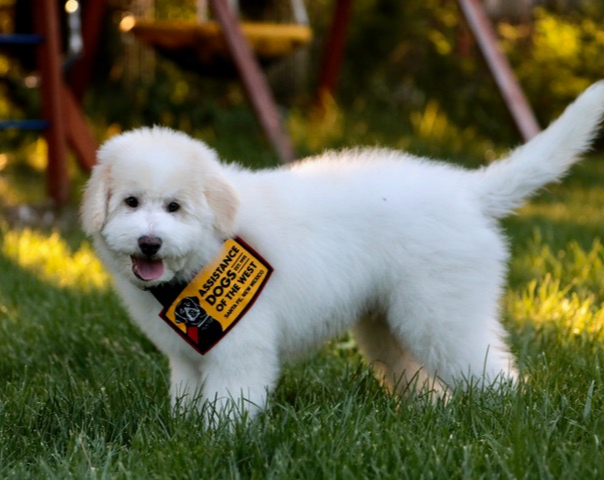Assistance Dogs of the West

ADW's History
Assistance Dogs of the West’s compassionate training approach facilitates the deepest possible bond between humans and animals, and models best practices in social-relationship interactions.
With the core value of respect for the singular bond between humans and dogs and their unique ability to work together as a team, Program Director Jill Felice founded Assistance Dogs of the West in 1995.
Qualities of kindness, gentleness and respect in training dogs to assist humans define everything that we do. This compassionate training approach facilitates the deepest possible bond between humans and animals. ADW’s programs model best practices in social-relationship interactions.
The keystone of ADW’s program is teaching diverse student populations to support the work of professional dog trainers. Encouraging youth leadership is vital to who we are.
In the dog-training process, quality and quantity of learning are served. Every ADW dog learns a minimum of 90 commands. Additional training that educates dogs to serve complex disabilities such as medical alert and PTSD have expanded our programs, and continue to help us build community and empower diverse populations. Success story upon success story describe the commitment and love ADW dogs bring to our clients’ lives.
We also have accepted new opportunities to extend our knowledge into settings that have distinctive needs for ADW dogs.
For more than six years, we have trained facility dogs for work in professional group settings from private therapeutic practices, to drug treatment centers, to college campuses, to judicial districts. Wherever they serve in our program spectrum, ADW dogs reflect our commitment to fostering compassion as the hallmark of leadership and positive social change.
ADW Summer Camp & After School Programs
Simply put, we teach students to train dogs to help people. Since 1995, over 3500 youth in New Mexico have taken part in the ADW Student Training program, the largest of its kind in the world. This work strengthens relationships, builds skills and nurtures empathy among young people, the dogs they train and our clients.The student trainers learn from our professional trainers, whose job is to instill behaviors in dogs that form the foundation for learning 90 cues. The staff trainers take the dogs into classrooms where the students reinforce the dogs’ behavior, refine the cues in public settings, and experience first-hand what training service dogs entails.


